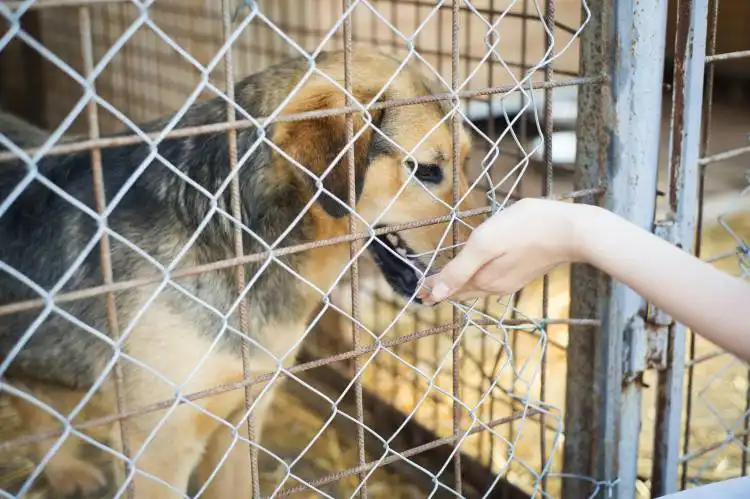Start a Pet Hotel Business
Turn Passion into Profit: The Joyful Journey of Owning a Pet Hotel Business
| Updated


PET HOTEL BUSINESS
Unleash your entrepreneurial spirit in the pet industry with a Pet Hotel Business! Just imagine converting your love for animals into a bustling profession where your primary task is to provide a safe and entertaining environment for people's beloved furry friends. As a pet hotel owner, your establishment will cater to pet parents who need a friendly, caring place for their pets when they're out of town. You'll offer services like day care, overnight stays, grooming, and maybe even room service for pets, where every day is a festival of wagging tails and purring pals!
Jump to Business Plan
RELATED BUSINESS IDEAS
Browse ALL Pets & Animals Business Ideas
Discover Your Perfect Domain
Unlock the door to your online success with our hand-picked selection of premium domain names. Whether you're starting a new venture or rebranding an existing one, the right domain can set the tone for your digital presence. Browse through our curated list, each with its unique potential to enhance your brand's visibility and credibility.
PET HOTEL MINI BUSINESS PLAN
This a quick reality check to help you identify the strengths and weaknesses of your business concept before you dive in.
Expected Percent Margin:
- Gross Margin: 70-80%
- Net Profit Margin: 20-30%
Earnings Expectations:
- Daily Earnings: $250 - $650
- Weekly Earnings: $1,750 - $4,550
- Monthly Earnings: $7,500 - $19,500
- Annual Earnings: $90,000 - $234,000
Actions to Hit Those Numbers:
Service Provision & Staffing:
- Initial Investment: Approximately $100,000 for property renovations, licensing, insurances, and initial operation costs.
- Experienced Staff: Hire trained professionals, including pet handlers, groomers, and trainers.
Marketing and Customer Acquisition:
- Website and Online Booking: Keep an updated, user-friendly website with options to book services online.
- Social Media: Regularly post on platforms like Instagram and Facebook, showcasing clients (with permission) and your services.
Quality and Variety of Services:
- Accommodation: Maintain quality accommodations varying from luxury to economy styles; prices should reflect these.
- ** Ancillary Services**: Offer ancillary services such as pet grooming, training, and pet daycare services.
- Veterinary Care: Have a partnership or onsite service for emergency health care.
Cost Control:
- Utility Bills: Budget approximately $500 per month for utilities like electricity, water, etc. Try to implement cost-cutting measures like energy-efficient lighting.
- Maintenance: Keep aside a budget for regular maintenance of facilities.
Business Operations:
- Operating Hours: Keep open hours that cater to your clients’ working hours, possibly including weekends.
- Occupancy Rates: Aim for a high occupancy rate (around 70%) consistently throughout the year.
As with any business, these numbers are just estimates and could vary with location, competition, efficiency of operation, and demand. The overall success of your pet hotel business would be greatly influenced by your efforts towards providing excellent service and care to your furry guests and their owners.
NOT WHAT YOU HAD IN MIND? Here are more ideas



Browse ALL Pets & Animals Business Ideas
Grab Your Business Website Name
Before you get caught up in the whirlwind of setting up your business, invest in a domain name. It's a small but significant step that lays the foundation for your brand and makes it easier for customers to find and trust you. Just like you wouldn't build a house without securing the land first, don't build a business without securing your domain name.
"Why? Can't that wait?" Here's why it shouldn't
Step 1: Determine if the Business is Right for You
Before starting a pet hotel business, it is important to determine if it is the right endeavor for you. To do this, you should create a breakdown of startup expenses and ongoing expenses. This will help you to understand the financial commitment you are making and the potential return on investment.
When it comes to startup expenses, you should consider the cost of the building, the cost of renovations, the cost of supplies, the cost of marketing, and the cost of insurance. You should also consider the cost of hiring staff, the cost of training staff, and the cost of any licenses or permits you may need.
When it comes to ongoing expenses, you should consider the cost of supplies, the cost of marketing, the cost of insurance, the cost of staff, and the cost of any licenses or permits you may need. You should also consider the cost of utilities, the cost of maintenance, and the cost of any additional services you may offer.
When it comes to making money, you should consider the cost of boarding, the cost of daycare, the cost of grooming, the cost of training, and the cost of any additional services you may offer. You should also consider the cost of retail items, such as food, toys, and supplies, and the cost of any special events you may host. Additionally, you should consider the cost of any advertising or promotional activities you may do.
Step 2: Name the Business
Tips on how to choose the right name
When choosing a name for your pet hotel business, it is important to consider the type of business you are running. You want to choose a name that is memorable, unique, and reflects the services you offer. You should also consider the target audience you are trying to reach and the type of atmosphere you want to create. Additionally, make sure the name is available and not already taken.
Considerations for the name
When choosing a name, you should consider the type of business you are running and the services you offer. You should also consider the target audience you are trying to reach and the type of atmosphere you want to create. Additionally, make sure the name is available and not already taken. You should also consider the length of the name and whether it is easy to pronounce. Additionally, you should consider the domain name availability and whether the name is trademarked. Finally, you should consider the potential for the name to be used in marketing and advertising.
Step 3: Create a Business Plan
Outline the goals of the business
It is important to have a clear vision of what you want to achieve with your pet hotel business. Outline the goals of the business in terms of the services you plan to offer, the types of pets you will accept, the size of the facility, and the target market. Additionally, consider the long-term goals of the business and how you plan to grow and expand over time.
Research the competition
Before you start your pet hotel business, it is important to understand the competitive landscape. Research the competition in your area to determine what services they offer, what their prices are, and how they market their business. This will help you to develop a competitive advantage for your business.
Estimate the startup costs
Once you have a clear understanding of the competitive landscape, it is important to estimate the startup costs for your pet hotel business. This should include the cost of the facility, the cost of supplies, the cost of hiring staff, and the cost of marketing. Additionally, consider the cost of any licenses or permits that may be required in your area. This will help you to develop a realistic budget for your business.
Step 4: Obtain the Necessary Licenses and Permits
Research the local laws and regulations
Before obtaining the necessary licenses and permits, it is important to research the local laws and regulations. This includes researching the zoning laws, health codes, and other regulations that may apply to a pet hotel business. It is also important to research the local laws and regulations regarding the types of animals that can be housed in the pet hotel. This research should be done before any other steps are taken to ensure that the business is compliant with all applicable laws and regulations.
Obtain the necessary licenses and permits
Once the research is complete, the next step is to obtain the necessary licenses and permits. This may include a business license, a zoning permit, a health permit, and any other permits that may be required by the local government. Depending on the location, there may also be additional permits or licenses that need to be obtained. It is important to ensure that all necessary permits and licenses are obtained before the business can open. This will help to ensure that the business is operating legally and in compliance with all applicable laws and regulations.
Step 5: Secure Financing
Considerations for Financing
Before securing financing for a pet hotel business, it is important to consider the amount of money needed to cover startup costs and ongoing expenses. This includes the cost of renting or purchasing a building, purchasing furniture and equipment, hiring staff, and advertising. It is also important to consider the amount of money needed to cover the cost of supplies, such as food, bedding, and toys.
Sources of Financing
There are several sources of financing available for a pet hotel business. These include traditional loans from banks and credit unions, small business loans from the Small Business Administration, and crowdfunding platforms. Additionally, some entrepreneurs choose to finance their business through personal savings, investments from family and friends, or venture capital. It is important to research the different financing options available to determine which one is the best fit for the business.
Step 6: Find a Location
Considerations for the location
When deciding on a location for a pet hotel business, it is important to consider the size of the facility, the local zoning laws, and the surrounding area. The size of the facility should be large enough to accommodate the number of pets you plan to house, as well as any additional amenities you plan to offer. It is also important to research local zoning laws to ensure that a pet hotel is allowed in the area. Additionally, the surrounding area should be safe and easily accessible for customers.
Tips on finding the right location
When looking for the right location for a pet hotel business, it is important to consider the needs of the customers. Look for a location that is close to major highways, public transportation, and other pet-related businesses. Additionally, look for a location that has plenty of parking and is in a safe neighborhood. It is also important to consider the competition in the area and make sure that the pet hotel stands out from the competition. Finally, consider the cost of the location and make sure that it fits within the budget.
Step 7: Hire Staff
Considerations for hiring staff
When hiring staff for a pet hotel business, it is important to consider the needs of the business. Depending on the size of the business, it may be necessary to hire a variety of staff members, such as a receptionist, pet caretakers, and a manager. It is important to consider the qualifications and experience of each potential employee, as well as the cost of hiring them. It is also important to consider the type of training that will be necessary for each staff member to ensure that they are able to provide the best care for the pets.
Tips on finding the right staff
When looking for the right staff for a pet hotel business, it is important to look for individuals who have experience in the pet care industry. It is also important to look for individuals who are passionate about animals and have a positive attitude. Additionally, it is important to look for individuals who are reliable, organized, and have good communication skills. It is also important to look for individuals who are willing to learn and grow with the business. Finally, it is important to look for individuals who are willing to work as part of a team and are willing to take on additional responsibilities as needed.
Step 8: Promote the Business
Considerations for marketing
Before launching any type of marketing campaign, it is important to consider the target audience for the pet hotel business. Are you targeting pet owners, pet breeders, or both? Once the target audience is identified, it is important to determine the best way to reach them. This could include traditional forms of advertising such as print, radio, or television, as well as digital marketing methods such as social media, email, and search engine marketing. Additionally, it is important to consider the budget for marketing and determine which methods will be the most cost-effective.
Tips on promoting the business
Once the target audience and budget have been determined, it is important to create a marketing plan that outlines the goals and strategies for promoting the business. This plan should include tactics such as creating a website, utilizing social media, and developing relationships with local pet stores and breeders. Additionally, it is important to consider other forms of promotion such as hosting events, offering discounts, or creating a referral program. Finally, it is important to track the results of any marketing efforts to ensure that the strategies are working and that the business is reaching its desired audience.
Step 9: Monitor the Business
Considerations for monitoring the business
When monitoring the business, it is important to keep track of the financials. This includes tracking the income and expenses of the business. It is also important to track the number of customers and the services they are using. Additionally, it is important to track the number of employees and their salaries. Finally, it is important to track the customer feedback and satisfaction.
Tips on tracking the success of the business
When tracking the success of the business, it is important to measure the progress of the business against the goals set in the beginning. This includes tracking the number of customers and the services they are using. Additionally, it is important to track the customer feedback and satisfaction. It is also important to track the number of employees and their salaries. Finally, it is important to track the financials of the business, including income and expenses. By tracking all of these metrics, the business owner can get an accurate picture of the success of the business.
EXPLORE MORE CATEGORIES
Browse ALL Business Idea Categories
TAKE THE NEXT STEPS









